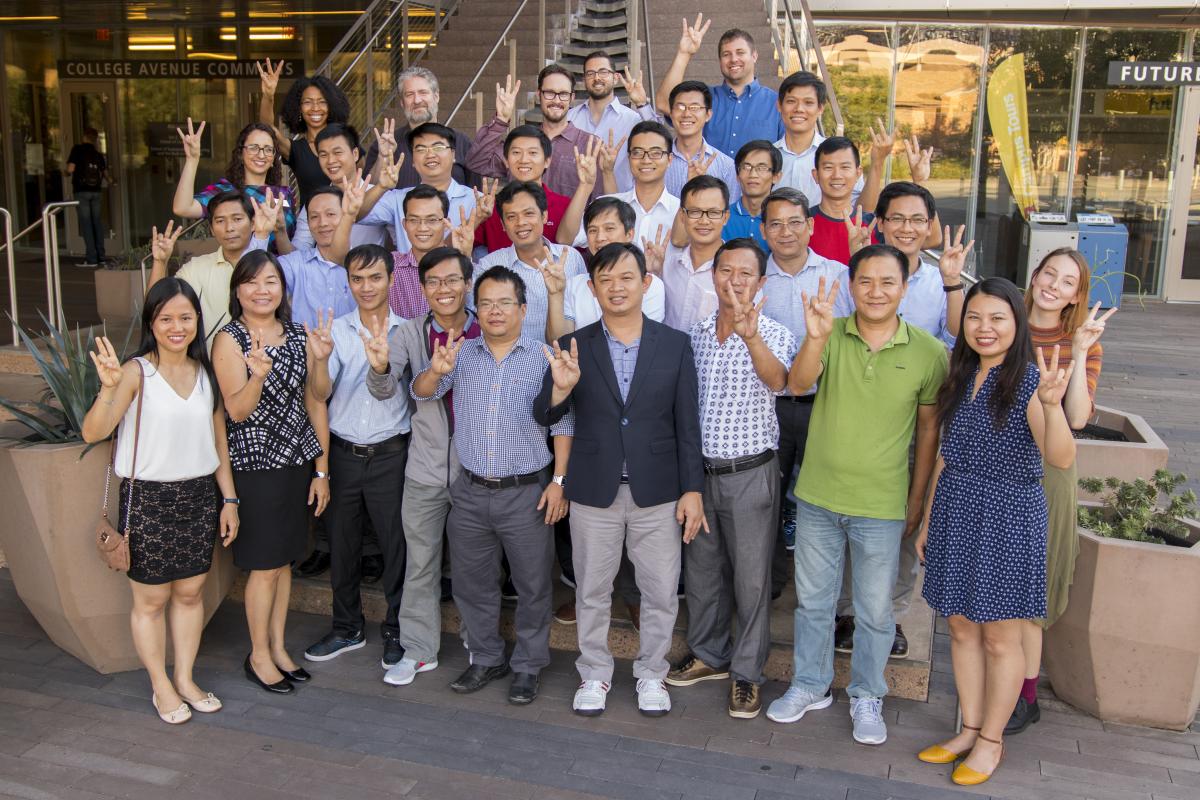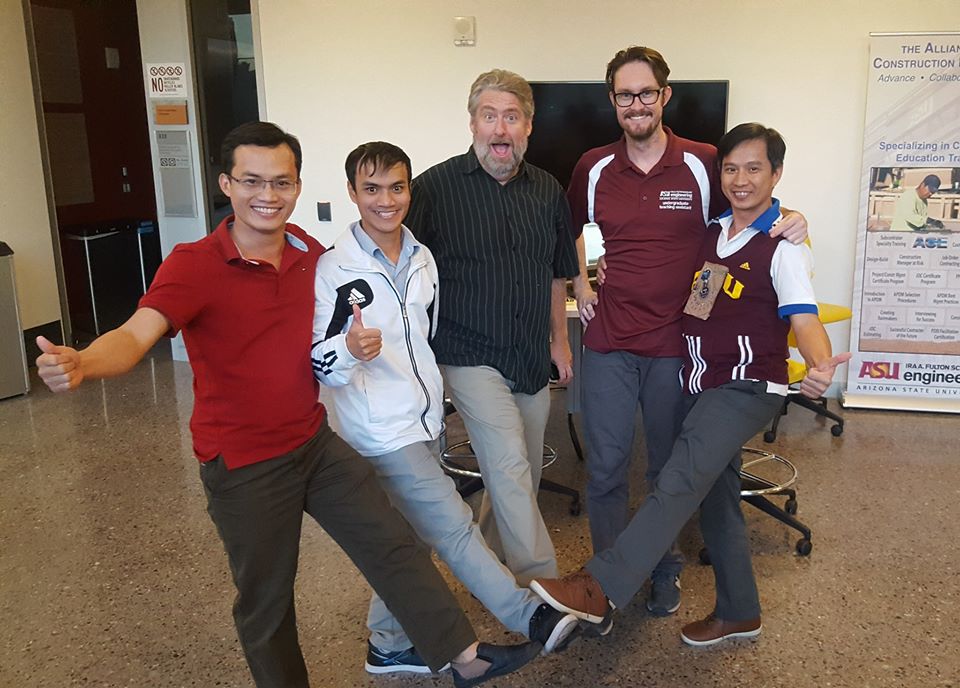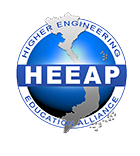The year 2017 marks the last year of the Intel-sponsored HEEAP Vocational and University Cohorts. For the past six years, two groups of approximately 25 engineering professors from vocational schools and universities in Vietnam have come to spend their summer break at ASU learning innovative ways to make their classrooms more engaging and to ultimately better prepare their students for a career in engineering immediately following graduation. Since 2012 there have been 301 Vietnamese professors who have participated in the HEEAP Cohorts.

Above: All 22 members of the last HEEAP cohort gather with ASU faculty, staff and student
volunteers at the closing ceremony for a final photo with the ASU pitchfork symbol representing
the ASU mascot, proudly held high. Photo courtesy of HEEAP.
The 2017 vocational cohort was comprised of 22 professors from Ho Chi Minh City. The professors studied at ASU for four weeks under the direction of HEEAP Academic Director, David Benson, and were challenged to embrace new teaching methods by taking the role of a student again themselves. HEEAP was able to catch up with two of this year’s vocational cohort graduates - Son Hai Nguyen, a mechanical engineering professor at Cao Thang Technical College, and Anh Tuan Dinh Tran, a professor from the Industrial University of Ho Chi Minh City - to see how their participation in HEEAP has impacted their classes and students this semester.
HEEAP: How have you been using what you learned as part of the HEEAP Vocational cohort at your university?
Nguyen: After training with the HEEAP Vocational cohort, I applied new methods for my lectures at my school. I applied Flipped Classroom, Think-Pair-Share, group discussion to solving problems, Content and Language Integrated Learning Lessons, Project Desktop and Project Based Learning to my lessons. I’ve also used Kahoot.com to play mini games with my students.
Tran: I have being using active methods which I studied at ASU, such as teambuilding, Think-Pair-Share, PBL and Quick Money. Additionally, I have found that my colleagues are also applying what they learned at ASU in their classrooms.
HEEAP: How have your students responded to the changes you have made in your classroom?
Nguyen: My students are very excited to discuss and tell me that they are interested in learning this method, as it is applied immediately and they are not left sleepy like when I taught with the usual method. They have the opportunity to work more and learn more.
Tran: I have found that my students are doing well. They still do their big applied project which is to make a refrigeration system (simulation only) from my requirements: lightest, smallest, cheapest. They will also get higher scores if parts are movable. Students are very excited in my classes.
HEEAP: Have you faced any challenges this semester since implementing these new methods in your classroom?
Nguyen: Implementing change is hard as engineering education in Vietnam is limited with few materials and equipment. Traditional training programs are a little heavy in theory and have not gone into practice and application.
Tran: I face a problem that is the time of a course. There is not enough time if I always apply ASU teaching methods. So I have to combine traditional methods and ASU methods. Here we also have lack of facilities to teach.

Above: (From left) Son Hai Nguyen, Nguyen Le Viet Hoang, David Benson,
Tyler Michael, and Anh Tuan Dinh Tran kick in for a team photo after completing their
final emergency evacuation simulation project with HEEAP.
Photo courtesy of Son Hai Nguyen.
HEEAP: If you could tell the sponsors of the HEEAP Vocational Cohort one thing, what would you say?
Nguyen: Thank you to the HEEAP program sponsor. I have had great experiences with this program. I have made great changes for myself in thinking and acting for the cause of education and training. This program is very meaningful to me, my school and Vietnam for its innovation and promotion of the development of education.
BY KHANDLE HEDRICK

